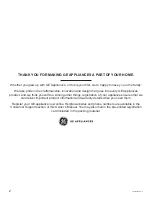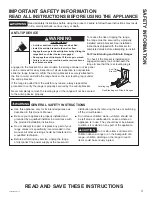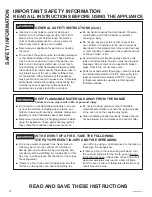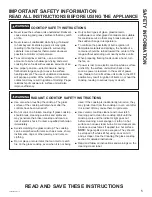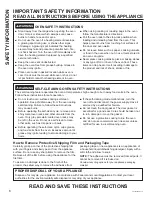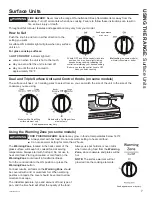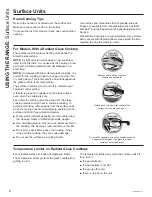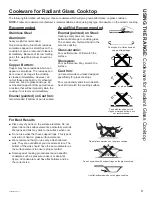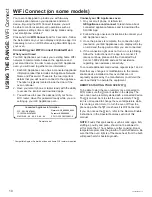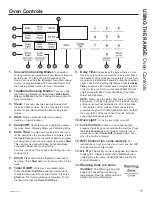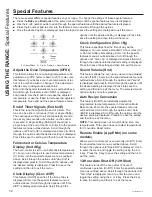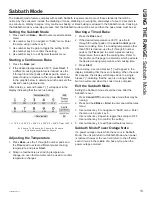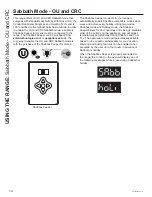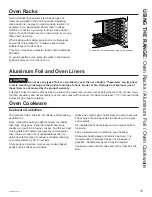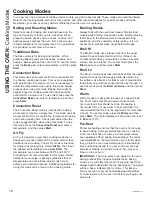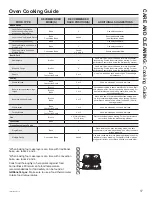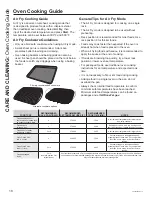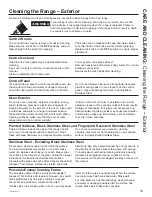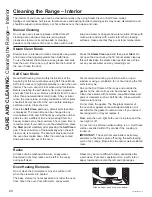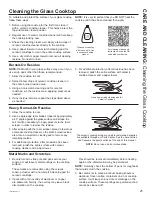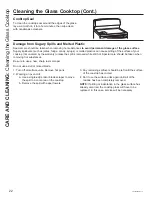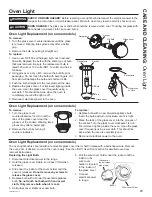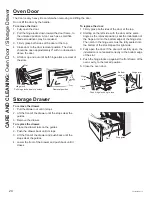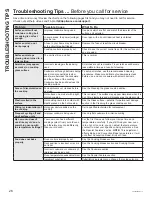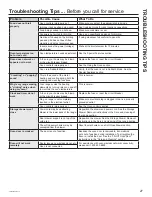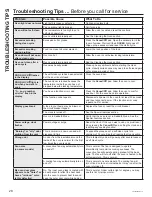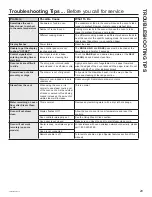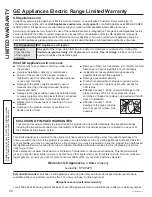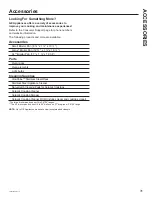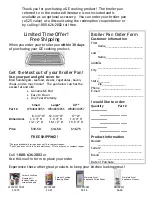
16
49-2000999 Rev. 2
USING THE OVEN:
Cooking Modes
Your new oven has a variety of cooking modes to help you get the best results. These modes are described below.
Refer to the Cooking Guide section for rack position and other recommendations for specific modes and foods.
Remember, your new oven may perform differently than the oven it is replacing.
Baking and Roasting Modes
Select a mode for baking and roasting based on the
type and quantity of food you are preparing. When
preparing baked goods such as cakes, cookies, and
pastries always preheat the oven first. Follow recipe
recommendations for food placement. If no guidelines
are provided, center food in the oven.
Traditional Bake
The Bake mode is for baking and roasting. When
preparing baked goods such as cakes, cookies, and
pastries, always preheat the oven first. To use this mode
press the
Bake
pad, enter a temperature, and then press
Start
.
Convection Bake
This mode uses air movement from the convection fan
to enhance cooking evenness. Your oven is equipped
with Auto Recipe Conversion, so it is not necessary to
adjust the temperature when using this mode. Always
preheat when using this mode. Baking time might be
slightly longer for multiple racks than what would be
expected for a single rack. To use this mode press the
Convection Bake
pad, enter a temperature, and then
press
Start
.
Convection Roast
The Convection Roast mode is intended for roasting
whole cuts of meat on a single rack. This mode uses air
movement from the convection fan to improve browning
and reduce cooking time. Check food earlier than the
recipe suggested time when using this mode. To use
this mode press the
Convection Roast
pad, enter a
temperature, and then press
Start
.
Air Fry
Air Fry is a special, no-preheat, cooking mode that is
designed to produce foods with a crispier exterior than
traditional oven cooking. The Air Fry mode is intended
for single rack cooking only. Select
Air Fry
, then input
the desired set temperature and press
Start
. The
temperature can be set between 300°F and 500°F.
Preheating is not recommended for this mode. Follow
traditional oven recipe or package guidelines for set
temperatures and cook times; adjust cook time to
achieve your desired crispness. Additional guidelines for
using this mode can be found in the Cooking Guide.
Broiling Modes
Always broil with the oven door closed. Monitor food
closely while broiling. Use caution when broiling; placing
food closer to the broil element increases smoking,
spattering, and the possibility of fats igniting. It is not
necessary to preheat when using the Broil modes.
Broil Hi
The Broil Hi mode uses intense heat from the upper
element to sear foods. Use Broil Hi for thinner cuts
of meat and/or when you would like to have a seared
surface and rare interior. To use this mode press the
Broil
pad once and then press
Start
.
Broil Lo
The Broil Lo mode uses less intense heat from the upper
element to cook food thoroughly while also browning
the surface. Use Broil Lo for thicker cuts of meat and/or
foods that you would like cooked all the way through. To
use this mode press the
Broil
pad
twice
and then press
Start
.
Warm
Warm modes are designed to keep hot, cooked foods
hot. Cover foods that should remain moist and do
not cover foods that should be crisp. Preheating is
not required. Do not use warm to heat cold food. It is
recommended that food not be kept warm for more than
2 hours. To use this mode, press the
Warm
pad then
press
Start.
The control display will show the oven is set
to Bake at 170°F.
Pre-Heat
Proper preheating ensures that the oven is hot enough
to begin baking. Improper preheating (that is, cooking
in the oven that has not come up to set temperature)
can negatively affect cooking. Depending on the recipe
recommendations, the temperature of your foods when
they go into the oven may determine your final baking
time and baking results; if you put your food, such as
biscuits or breads, in during Pre-heat, they may over
brown on top or burn.
IMPORTANT:
The more items to be heated in the oven
during preheat (this includes multiple racks, baking
stones, etc.) will affect the length of your pre-heat time.
Always begin baking after the pre-heat signal. The signal
will be a beep, indicaotr light or chime. This lets you
know your oven is at your needed baking temperature.
For best results, turn the oven On before you begin your
prep work.
Cooking Modes

